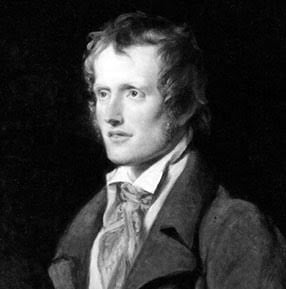1
Wilt thou go with me sweet maid
Say maiden wilt thou go with me
Through the valley-depths of shade,
Of night and dark obscurity,
Where the path has lost its way
Where the sun forgets the day
Where there’s nor life nor light to see
Sweet maiden, wilt thou go with me?
2
Where stones will turn to flooding streams
Where plains will rise like ocean waves
Where life will fade like visioned dreams
And mountains darken into caves
Say maiden wilt thou go with me
Through this sad non-identity
Where parents live and are forgot
And sisters live and know us not?
3
Say maiden wilt thou go with me
In this strange death of life to be
To live in death and be the same
Without this life, or home, or name
At once to be, and not to be
That was, and is not—yet to see
Things pass like shadows—and the sky
Above, below, around us lie?
4
The land of shadows wilt thou trace
And look—nor know each other’s face,
The present mixed with reasons gone
And past, and present all as one.
Say, maiden can thy life be led
To join the living to the dead?
Then trace thy footsteps on with me
We’re wed to one eternity.
This poem is in the public domain. Published in Poem-a-Day on October 23, 2022, by the Academy of American Poets.
“An Invite to Eternity” was first published on September 22, 1893, in The Literary World. According to a note accompanying the poem, it was written in May of 1848, mere days before Clare gave the poem, along with two others, to Jesse Hall, an admirer of Clare’s poems who had come to visit him in the Northampton General Lunatic Asylum, where he had been a patient for nearly seven years. In The Visionary Company: A Reading of English Romantic Poetry (Doubleday & Company, 1961), Harold Bloom cites “An Invite to Eternity” as one of Clare’s three best poems, and writes that it is “more than enigmatic and less than obscure. Perhaps dark with excessive light, again like so much of [William] Blake. What meaning can the poem’s last line have if eternity is a state merely of non-being? Why ‘wed’ rather than ‘bound’? The poem seems to be an appeal for love and courage, and the close has a tone of something like triumph. Why, then, the striking ‘the present mixed with reason gone’? Last, and most crucial, if this is an invitation, where is the voluntary element in the vision; what lies in the will of the maiden?”

